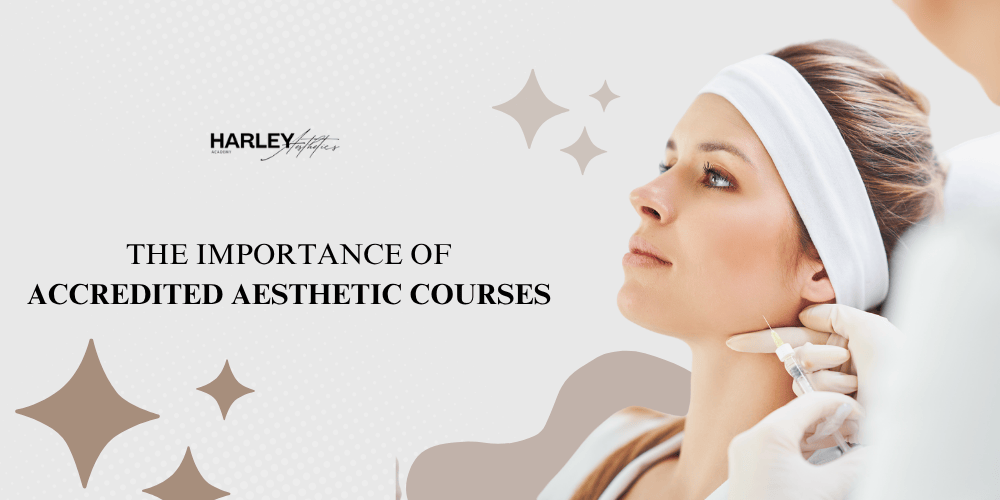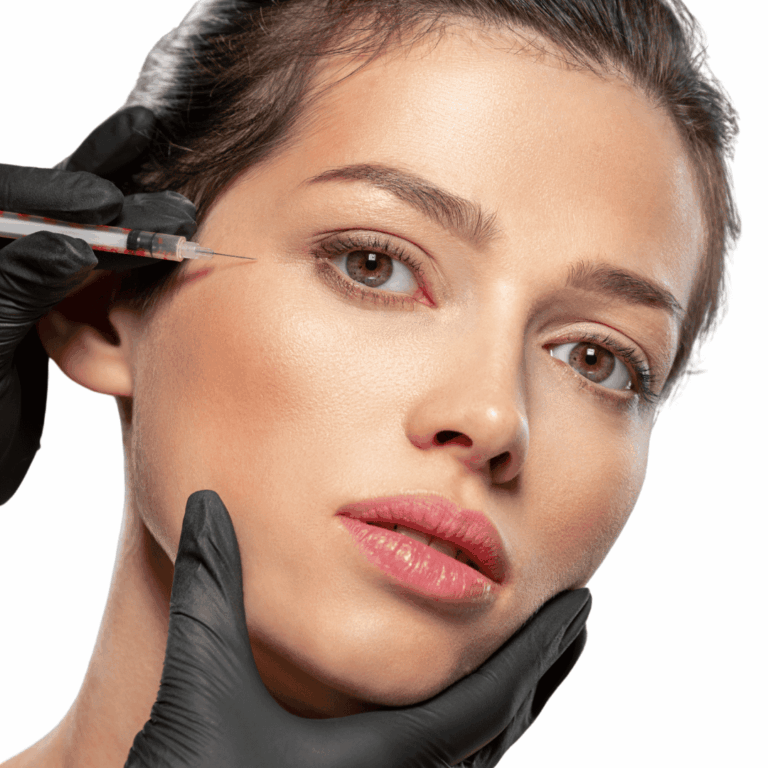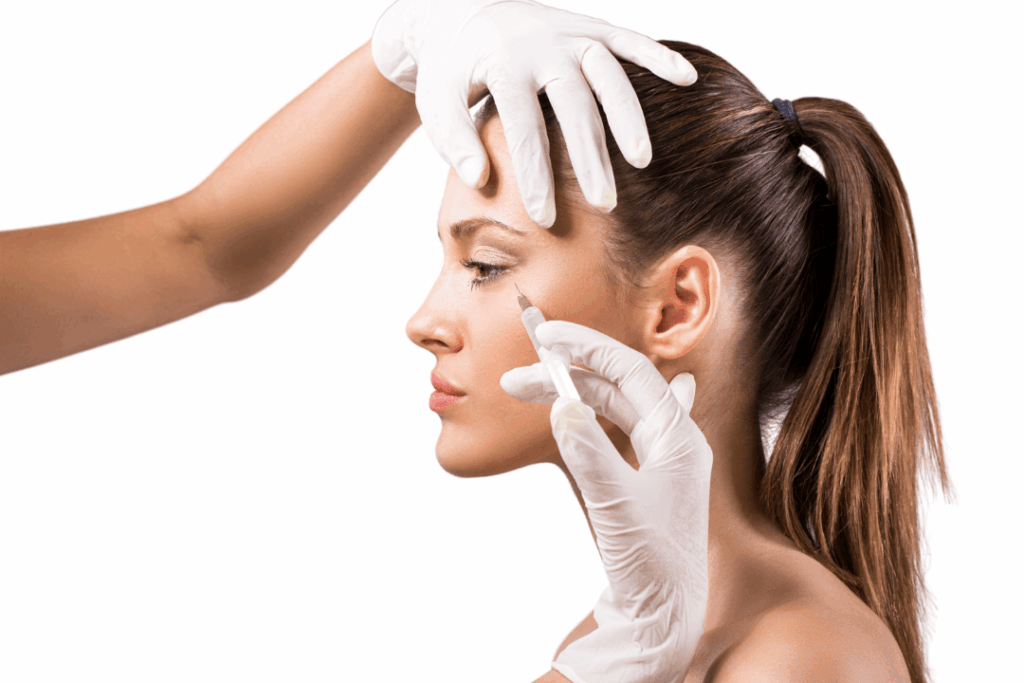July 2025 Sale – 40% Off Get Offers

In recent years, the beauty and aesthetics industry has witnessed remarkable growth. More and more people are turning to non-surgical cosmetic treatments like dermal fillers, chemical peels, and anti-wrinkle injections to enhance their appearance and boost confidence. With this growing demand, many are considering a career in aesthetics, but the pathway to becoming a qualified practitioner is filled with choices. If you’ve ever searched for training, you’ll know there are countless courses on offer, but how do you know which ones truly prepare you for safe and effective practice? That’s where accredited aesthetic courses come into play.
Whether you’re a curious individual wondering if a career in aesthetics is right for you, a healthcare professional looking to diversify your skills, or someone searching online for answers about aesthetic training, understanding the importance of accreditation is essential. In this blog, we’ll explore why accredited courses matter so much for quality and safety, and what you should look out for when choosing your educational route.
If you want to explore accredited aesthetic courses tailored for UK practitioners, you can find comprehensive courses that offer recognised qualifications and practical skills here. These courses provide the tools to launch a successful career while prioritising safety and professionalism.
Accreditation is a formal recognition given to courses that meet specific standards set by industry bodies or educational authorities. When a course is accredited, it means the content, teaching methods, assessment procedures, and practical training have been independently evaluated and approved.
You might ask: “Why does this matter?” Imagine choosing a training course like buying a gadget, accreditation is like the quality assurance stamp. It guarantees that the course adheres to best practices, covers essential theory and practical skills, and prepares students for real-world challenges safely and effectively.
In the UK, accrediting bodies such as the Joint Council for Cosmetic Practitioners (JCCP) and organisations that offer Continuing Professional Development (CPD) points are widely recognised. Choosing courses linked with these bodies ensures your learning journey is both credible and respected.
First and foremost, the world of aesthetics deals directly with people’s bodies and health. Non-surgical treatments might seem simple, but they can carry serious risks if performed incorrectly. Complications such as infections, allergic reactions, or vascular occlusions are rare but possible, especially when procedures are done by poorly trained practitioners.
Accredited courses put safety at the heart of training. They teach you:
These elements ensure that when you step out as a practitioner, you’re prepared to protect your clients’ well-being – a responsibility you simply cannot afford to take lightly.

In such a competitive industry, standing out is vital. Having an accredited qualification shows clients and employers that you have invested in quality education. It’s a mark of professionalism and commitment.
Many people ask: “Will accredited aesthetic courses help me get clients?” The answer is yes, people want reassurance that their practitioner is trained to high standards. In fact, clients increasingly research practitioners’ qualifications before booking appointments.
Moreover, accreditation gives you confidence in your own skills, because you’ve been trained according to robust standards, with proper mentorship and supervised practice. This confidence translates into better client care and business success.
Many insurance providers insist on accredited training as a prerequisite for professional indemnity cover. Without insurance, practising aesthetics is not only risky but often illegal. An accredited qualification helps you:
Thus, accreditation is not just about education but a vital step in protecting your career and livelihood.
The aesthetics industry is constantly evolving with new treatments, regulations, and best practices. Accredited courses often include up-to-date material reflecting current guidelines from regulatory bodies and professional associations.
If you want to remain competitive and effective in your work, continuous learning through accredited courses is essential. It helps you keep your skills sharp and compliant with safety standards.
When considering an aesthetic training course, don’t just take the provider’s word for it. Here are some key points to evaluate:
Yes! Many accredited courses are designed for beginners or those with backgrounds in beauty therapy, nursing, or medicine. Some entry-level courses require no prior experience, while advanced ones may need healthcare qualifications.
Course length varies. Introductory courses might last a few days or weekends, while more comprehensive programmes can take several weeks. Some providers offer flexible learning with a mix of online and in-person practical sessions.
Completion of an accredited course is a crucial step, but in some cases, local regulations, insurance, or additional supervised practice may be required before practising independently. Always check regional requirements.
There are credible online courses, especially those offering CPD points, but practical training remains essential. The best online courses combine theory with in-person workshops or practical assessments.
Costs vary widely based on course level, duration, and content. Accredited courses tend to cost more due to the quality and comprehensiveness of training, but this investment pays off in your competence and career potential.
—-

Starting a career in aesthetics is about more than learning techniques, it’s about adopting a professional mindset, respecting client safety, and committing to lifelong learning. Accredited aesthetic courses equip you with everything needed to enter the industry confidently and responsibly.
Completing your accredited course is a major achievement, but it’s just the beginning. Here are some next steps to consider:
Build Your Portfolio: Practice under supervision, gather testimonials, and start growing your client base.
The UK aesthetic sector is expected to grow steadily as treatments become more mainstream. Stricter regulations and increased public awareness will push demand for accredited, ethical practitioners even higher.
In the future, accredited aesthetic courses will likely integrate new technologies such as AI diagnostics, 3D facial mapping, and advanced treatment methods. Staying educated through accredited pathways will keep you at the forefront of the profession.
In the aesthetics industry, where client safety and satisfaction are paramount, accredited training is non-negotiable. It’s the foundation on which successful, ethical, and professional practices are built. Whether you are just curious, considering a career change, or looking to deepen your expertise, opting for accredited aesthetic courses will give you peace of mind, recognised qualifications, and the skills to excel.
For detailed, trusted courses designed with safety and quality in mind, consider exploring professional accredited aesthetic courses here. Your journey into the world of aesthetics deserves the best start possible.
© Harley Aesthetics Copyright 2025. All Rights Reserved.